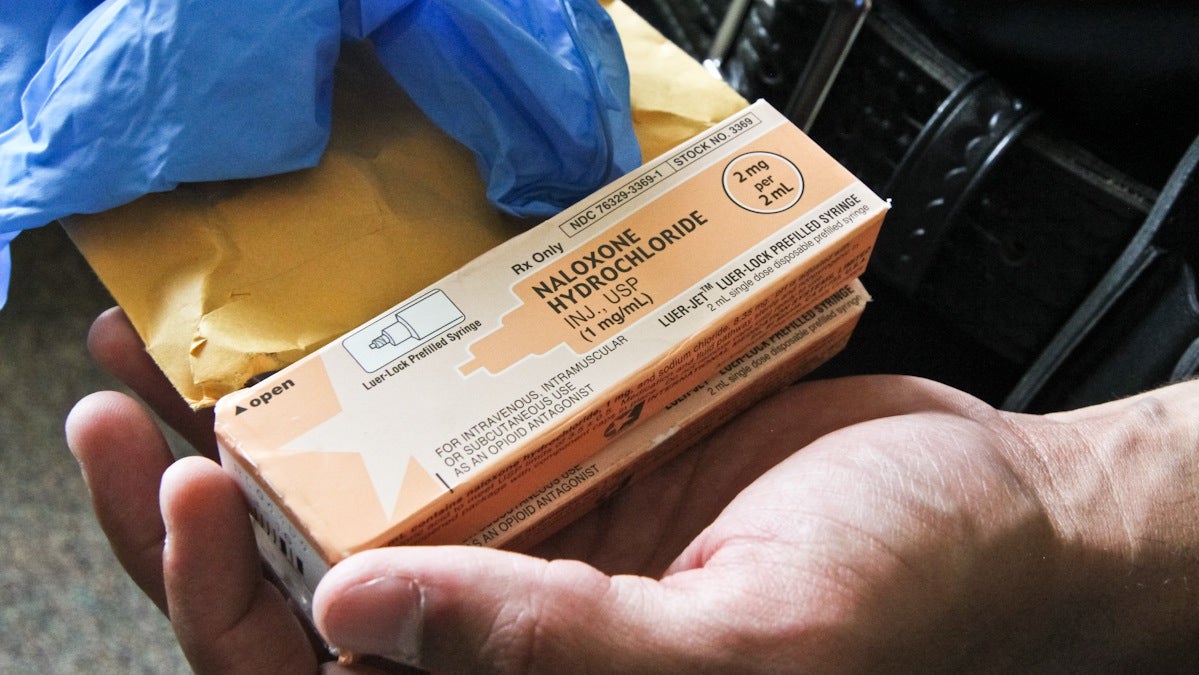Administering anti-overdose drug in Delaware hits snags, yields success

The Delaware Attorney General is trying to negotiate lower prices on Narcan (generically called Naloxone) for first responders.(Kimberly Paynter/WHYY)
Delaware’s attorney general is pushing for a cut in the price of nalaxone, to encourage more police departments to use the life-saving drug. Administered as a nasal spray or an injection, it can reverse a potentially fatal heroin overdose if given soon enough.
Delaware enacted legislation a year ago allowing police and community members to use Narcan, a brand name of the drug. Three jurisdictions have since equipped officers.
“We have people who are alive today in Delaware only because those officers are carrying it,” said state Attorney General Matt Denn. “It’s a dramatic change.”
Delaware has documented nearly 80 overdose deaths this year; in New Castle County alone, however, officers have resuscitated eight people in recent weeks. Even so, Police Chief Col. Elmer Setting said the price of the drug is a barrier.
“I have a very tight budget, and for me to say need I need 280 kits to outfit the police department, that’s very costly,” he said.
About 40 of Setting’s 250 officers carry the drug.
In the last year and a half, the price of Narcan has gone up 50 percent, to about $30 per dose, according to Denn. A few weeks ago, he reached out to the drugmaker directly to ask for a discount.
A handful of other states — including New Jersey — have successfully gotten a markdown. The company was not available for comment, but Denn said he has received a positive initial response.
Beyond the drug’s cost, Denn said departments may be slow to pick up Narcan because of the resources needed to train officers. Across the state line in Pennsylvania, cost has also been cited as an issue among departments that have yet to equip officers.
Administering a medication is also a new concept and role for many officers.
In the coming weeks, Denn said he will be seeking additional resources to offset some of those costs from a state fund of assets seized from criminal activity. If approved, he said, a discount and extra funding could lead to more departments equipping officers with the drug — and with that, saving more lives.
WHYY is your source for fact-based, in-depth journalism and information. As a nonprofit organization, we rely on financial support from readers like you. Please give today.

